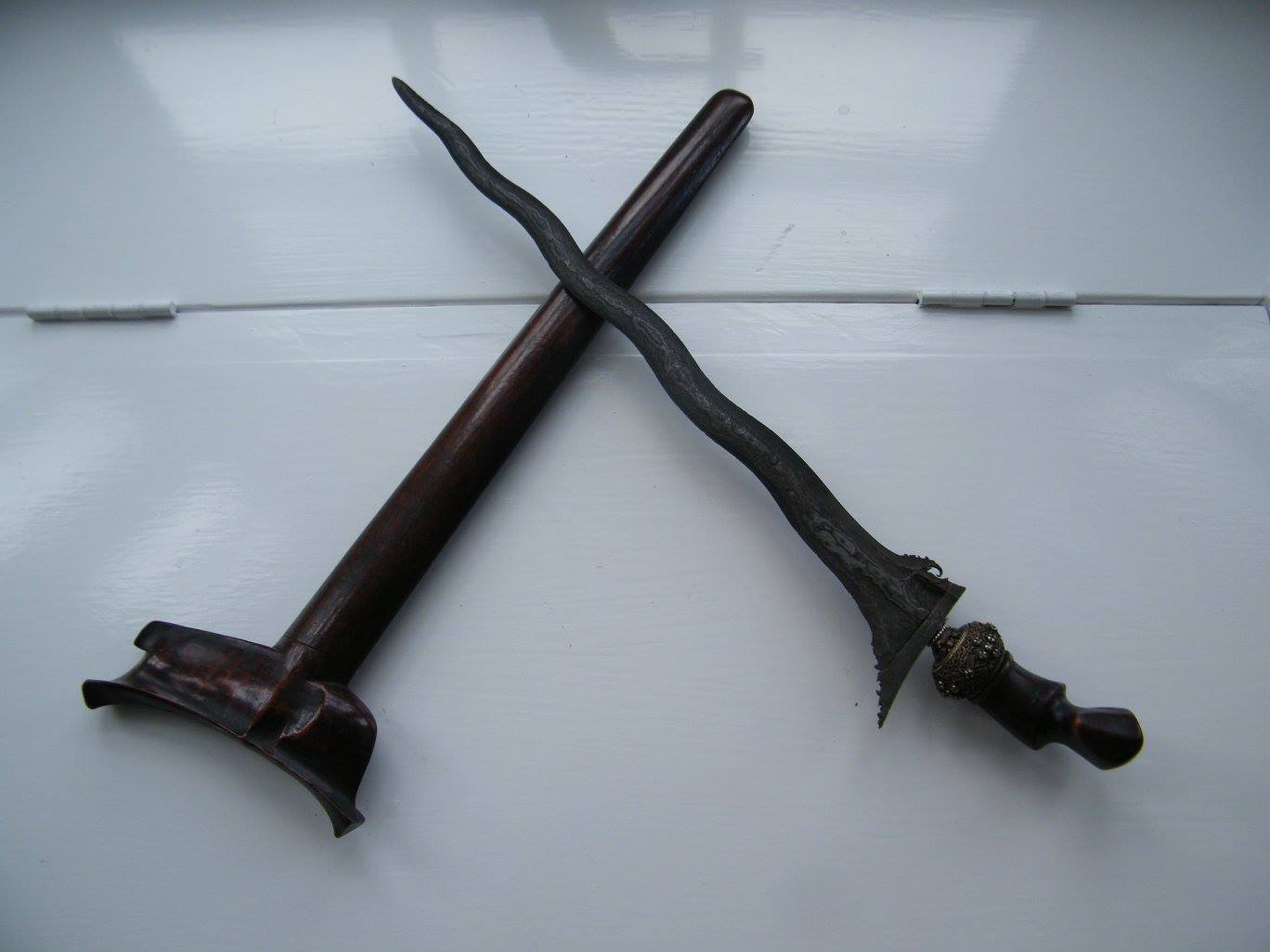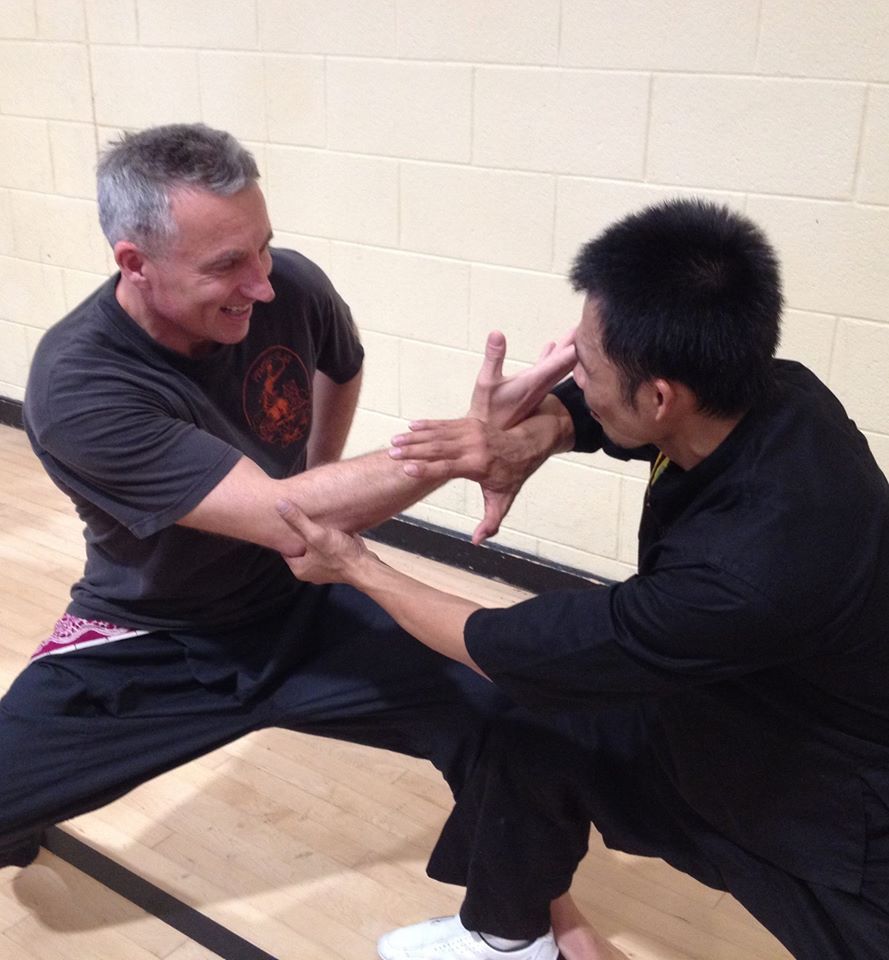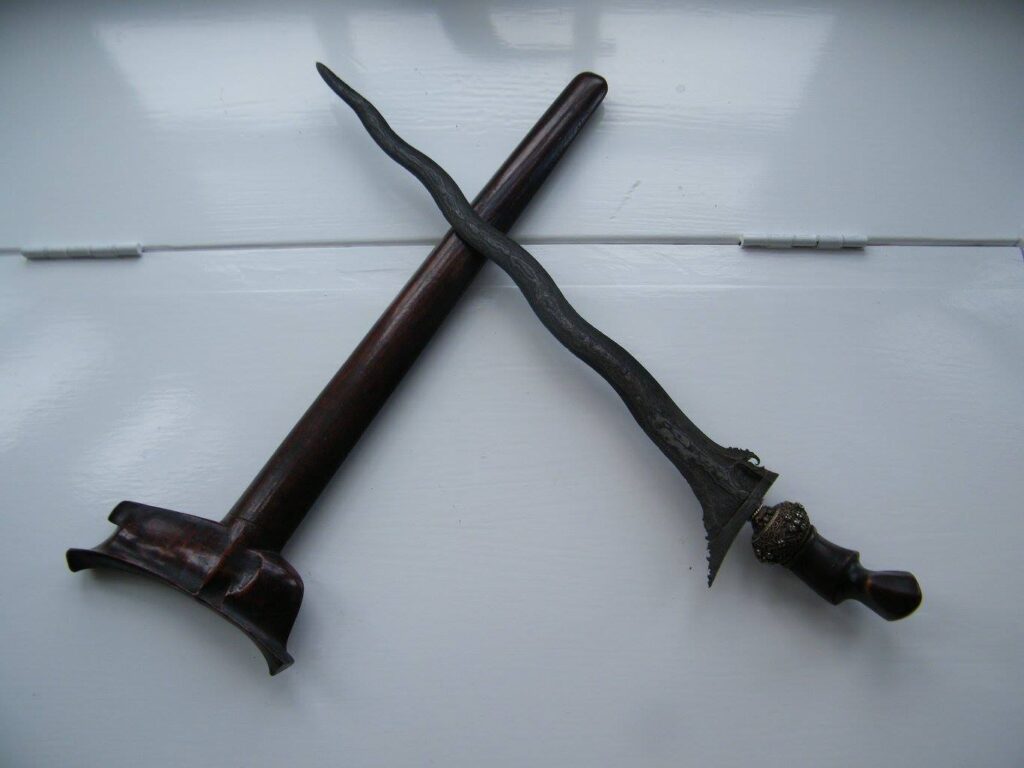Interview with Kang Mike

I recently found a traditional Pencak Silat teacher on my doorstep. Don’t you just love Facebook. Mike runs the West Kent Silat Padepokan which is a small private training facility in Kent. Mike has a lot of experience with traditional Pencak Silat and personally has been a great find at he is able to show both the modern day self defence applications as well as the historical basis. Just wish I had found him sooner…
Tell us a little about yourself
I have practiced martial arts all my life. From schoolboy judo to karate, then when older kickboxing and boxing. Muay Thai was next for 10 yrs before being introduced to Silat. I then spent a long time pre internet looking for a Silat teacher, took up Pilipino Kali before finding a Sumatran Harimau Silat teacher and a Malaysian Silat teacher, many trips to Malaysia and Indonesia later I have learned 5 styles of Silat and specialise in Styles from West Java.
I got started in martial arts through school and then later for fitness and self defence.
What is Pencak Silat?
Pencak Silat is an ancient style of martial art from the old Malay kingdom which covered modern day Indonesia, Malaysia, south Thailand, Vietnam, Cambodia and the Philippines. It is recorded as far back as AD 400-700, but significantly post 1400’s. It comprises Pencak which means the practice of movement and Silat the application of that movement for self defence. It covers all forms of combat and weapons and is as beautiful as it is deadly.

There are hundreds of styles across predominently Indonesia and Malaysia, they all share same fundamentals and principles but local environmental and physical differences dictate changes and preferences as to hands, feet, upright or ground bias.
What weapons does Pencak Silat cover?
The weapons include Sticks, Staff (toya/tongkat), Knife, Karambit (claw shaped blade), Sickle, Sword, Golok (machete), Kris (wavy blade), Kujang (weapon from solely W Java) and the Sarong (flexible weapon from a worn garment), there are many other weapons with a specific local flavour.

Where can people find out more?
People can contact me for more info/ or to train. I can also recommend other teachers who practice authentic silat in the UK.
< BACK